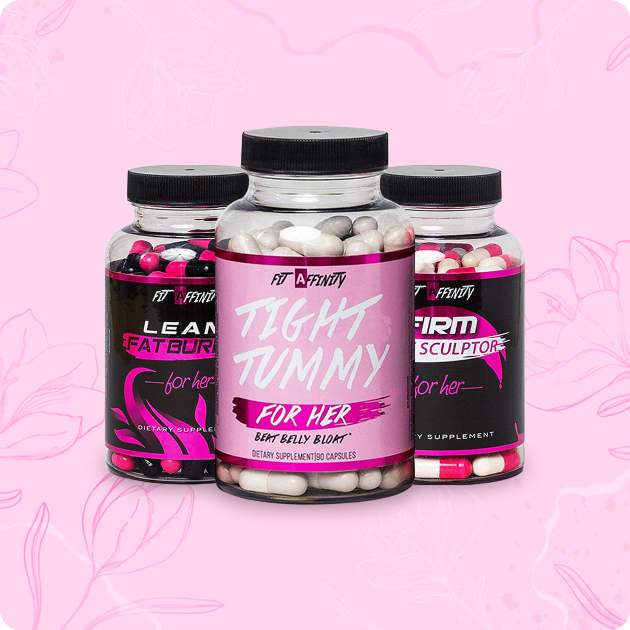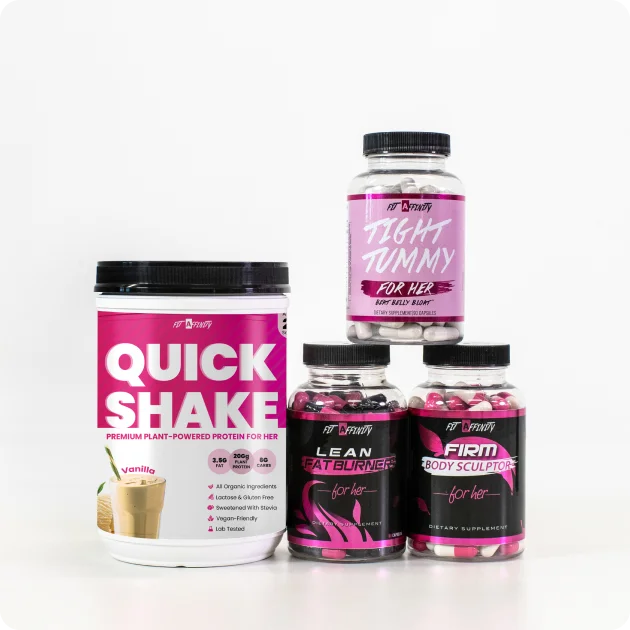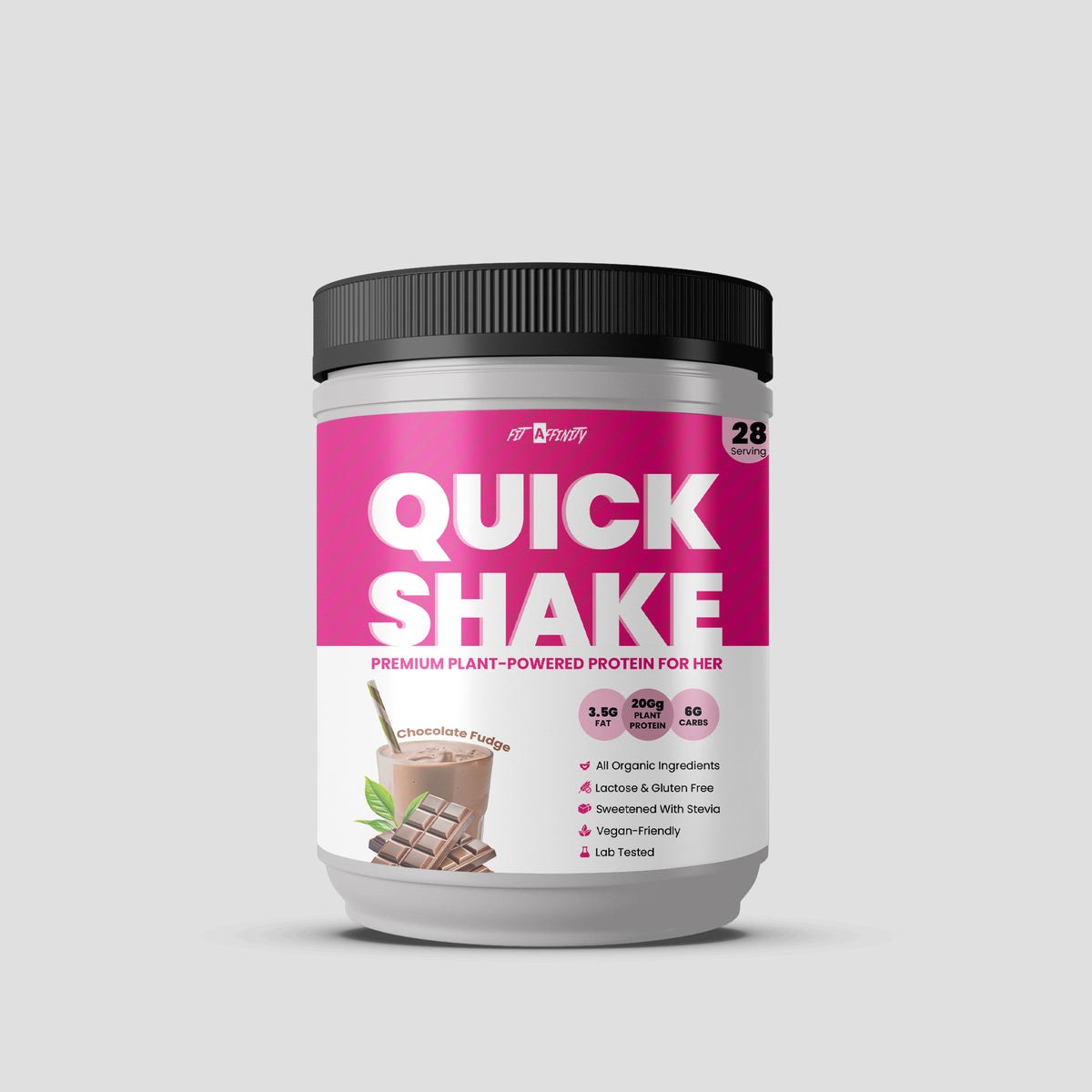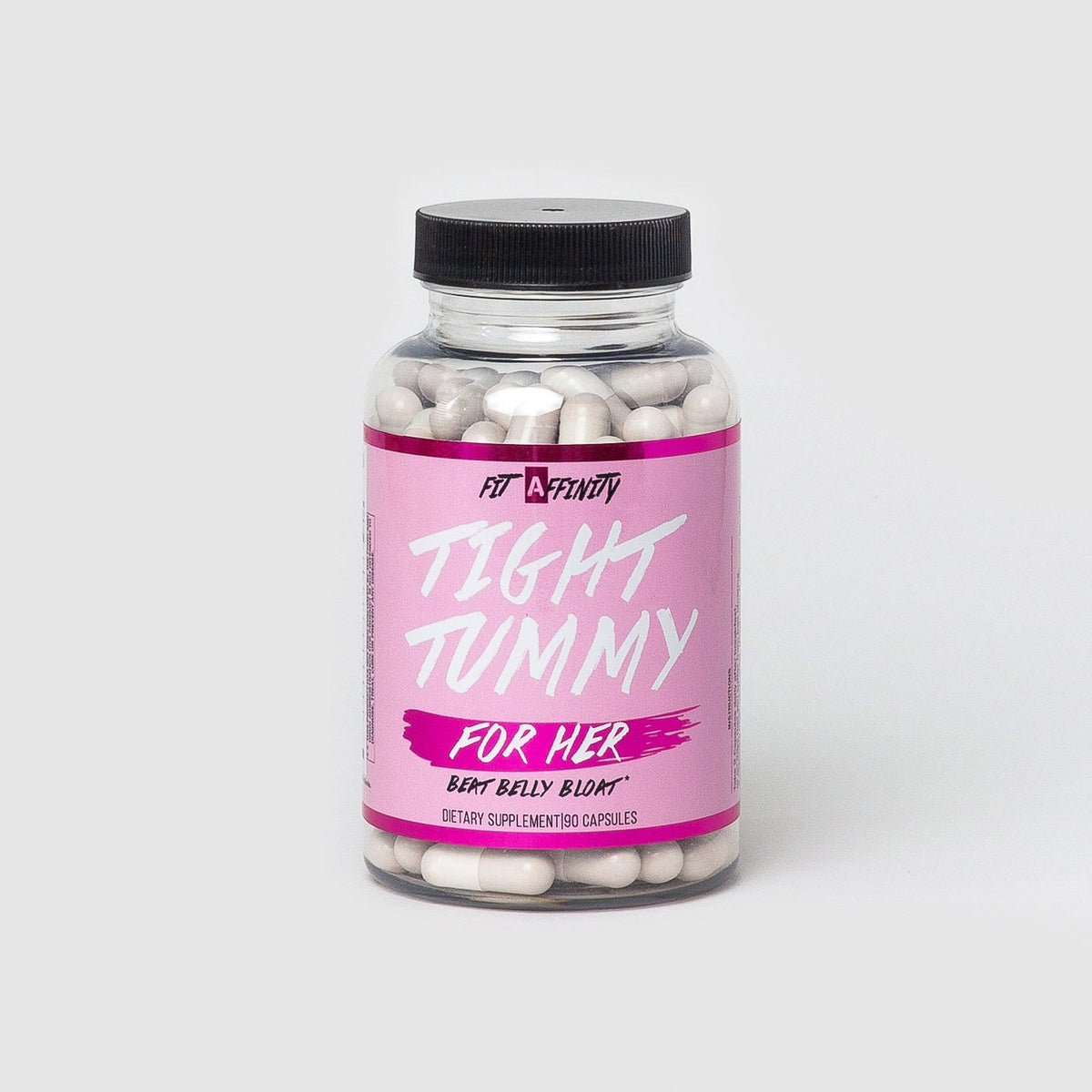Have you ever wondered why some people can eat to their heart's content without gaining a pound?
Then you have others who seemingly just look at a cookie and pack on ten pounds? Maybe this is exactly how you feel.
Your propensity to gain and lose weight is affected by many factors. These include genetics, chronic health issues, stress, age, gender, lifestyle and of course, the state of your metabolism.
While some of these are often beyond your control, there are steps you can take to speed up your metabolism to lose weight. This is the ultimate guide to help you build a fast metabolism.
How Does Your Metabolism Work?
You burn calories simply by existing. On a daily basis, your body is building and repairing cells, digesting food, and keeping your brain switched on, without you needing to even lift a finger.
These chemical processes and functions is what we refer to as your metabolism. There are two forms of metabolic processes called catabolism and anabolism.
Catabolism occurs when your body breaks down macronutrients (fats, proteins and carbohydrates) to provide energy for your body to build and repair cells. Anabolism is the metabolic process of utilizing the energy provided by the catabolic process. When there is excess energy provided to your cells at the anabolic state, your body will store it as fat.
To avoid weight gain, you want to influence your body's ability to burn energy prior to it reaching this stage.
Resting Metabolic Rate (RMR)
Your Resting Metabolic Rate (RMR) is used to calculate how many kilojoules (the measurement of energy) you burn at rest.
To understand how you can maximize your RMR, it helps to gain a basic understanding of how your body burns energy when you're in a resting state.
Even though your organs make up only around 7% of your total body mass, they are responsible for burning up to 70-80% of total resting energy expenditure.
In contrast, skeletal muscle makes up 40% of your body mass but only burns 28% of your total resting energy expenditure. So on a per pound basis, muscle mass burns far fewer calories than your organs. (source)
Your body can burn remaining energy either through intentional exercise, the thermic effect of consuming and digesting food or, simply store the excess as fat.
If you are trying to lose weight, obviously this is what you want to avoid. So it raises the question - what are some ways you can naturally speed up your metabolism to burn more fat?
Here are 13 of the most effective ways you can speed up your metabolism.
1. Build Lean Muscle

Hanging out at a gym, you've probably heard the widely adopted belief floating around that muscles burn more calories than fat. Some gym junkies even claim by up to 50 times!
While this broscience isn't entirely NOT true, the numbers are over-hyped.
But before you toss out the dumbbells, read on. Muscle certainly burns more calories than fat but only marginally so. Medical literature suggests a pound of muscle burns six calories while a pound of fat burns about two calories a day.
An article in the LA Times interviewed a specialist on obesity and metabolism, Claude Bouchard of the Pennington Biomedical Research Center in Baton Rouge.
Bouchard states that a 20% increase in muscle mass would only lead to a 4-5% increase in RMR. If you're eating 2000 calories a day, this would provide you with an extra burn of 80-100 calories.
While this may not seem like a significant number on paper, the flow on effects of exercising, especially weight training, will continue to benefit you for hours after a workout.
The best way to build up muscle is to strength train. Strength training fires up your internal engine (your metabolism), meaning that your body will continue to burn calories at a high rate well after your session has ended. It's called EPOC - excess post-exercise oxygen consumption. If you strength training on Monday morning, for example, your metabolism will still be burning at a higher rate until roughly midnight on Tuesday (cardio training doesn't provide anywhere near the same post-training metabolism boost).Sally Symonds @loveyourweightloss
If you're building muscle, you're participating in some form of body weight, resistance or weight training, thereby, burning more calories. It’s a compounding effect.
Furthermore, when you’re exercising at a moderate to high intensity and you experience an oxygen deficiency, your metabolism will increase to bring your body back to a state of homeostasis. This is signaled by an increase in blood flow as your body works to return oxygen to your muscles in recovery.
In the long term, you'll be doing more good for your body by building lean muscle mass.
2. Eat Enough Calories

Contrary to popular dieting belief, you don't need to starve yourself to lose weight. Many dieters don't realize the disservice they are doing to their bodies through chronic dieting and the negative impact this is having on their metabolism. One of the greatest mistakes of dieting is cutting calories far below the body's required energy needs.
If you diet for long enough, your body will begin to eat away muscle tissue to make up for the caloric deficiency. As mentioned prior, you need energy in order to simply keep blood flowing through your veins and your organs operating optimally.
Deprivation of energy by calorie restriction signals starvation to the body. When you decrease your energy intake, your body will compensate by down-regulating your metabolic rate to conserve energy.
A very low calorie diet of fewer than 800 calories a day can reduce your metabolic rate by more than 10 percent. Considering your organs are the largest burners of energy in your body, it's important to provide your body with enough fuel to keep them working optimally.
You can't expect a fire to keep burning without kindling or logs. Likewise, your metabolism needs energy to keep its fire stoked. This doesn't mean you need to gorge yourself every minute of every day as this will lead to weight gain. But nor should you starve yourself in the name of weight loss.
To speed up your metabolism, you need to consistently be fueling your body with healthy food. Which leads up onto the next point. What to fuel your metabolism with?
3. Eat a Balanced Diet

Not all calories are created equal.
Both carbohydrates and protein contain 4 calories while fat contains 9 calories per gram. Each are metabolised at a different rate.
Manipulating your macronutrient intake to take advantage of the metabolic boost provided by eating these foods in certain proportions is referred to as diet-induced thermogenesis.
Protein requires the most amount of energy (around 20-30%), then carbohydrates (5-10%) and lastly, fat (0-3%). This explains why many people experience higher satiety after a higher protein meal.
Protein helps maintain lean body mass (muscles) which actively burn calories, even when you're not working out. This doesn't mean you need to chug huge protein shakes, 20-30 grams at each meal is enough and will also help balance your blood sugar levels which prevents sweet cravings and overeating later on.”Kylie Edwards @cloudbreakbodyshop, Cloud Break Body Shop
What you eat should not be determined by the number of calories on the back of a packet though.
Each macronutrient has a role to play in fueling your body. Carbohydrates provide immediate energy. Protein builds vital muscle tissue and repairs cells. Fat fuels the body and aids the absorption of many important vitamins and minerals.
To keep your metabolism working optimally, you need to feed your body with the right kinds of fuel. This means you should focus on the nutrient density of the foods you eat.
When you eat a highly processed and refined food like a sugary breakfast cereal, your body will digest this far more rapidly than say, a bowl of freshly cooked rolled oats. The fiber in the oats will help to steady the digestive process and fire your metabolism for longer. This process reduces the insulin spike that comes from eating (especially from carbohydrate sources). In contrast, the body will rapidly do away with the cookie, which will cause a sharp spike in insulin and signal to your body to store this energy as fat if it’s not used straight away.
Eating foods in their whole form will demand more metabolic energy to process as opposed to eating or drinking a high sugar, high calorie food.
The thyroid governs your metabolism. This is the rate at which you absorb nutrients, convert food to energy and also regulates how your own energy is utilized. When the thyroid gland is not working, then your metabolism suffers, causing symptoms such as: weight gain and fatigue. By nourishing the thyroid you’ll be able to up regulate your metabolism. To do this add is foods which nourish the thyroid such as: sea vegetables, kelp and dulse flakes which contain iodine, 2 brazil nuts per day which are high in selenium, plus pumpkin seeds which contain zinc. All these nourish and repair the thyroid gland to boost metabolic rate.Naomi Judge @NaomiJudgeNatropath
4. Coconut Oil

Coconut oil is comprised mainly of medium chain fatty acids (MCTs). It has the highest concentration of MCTs found in nature. The body digests MCTs differently to other kinds of fat. Rather than being processed with the assistance of the gallbladder, it’s absorbed directly into the bloodstream providing a more instant energy boost for the body.
Unlike sugar, which provides an instant hit of energy but can be stored as fat if not utilised, the body does not store MCTs. Unless of course, you over consume calories. MCTs are used as your first point of energy.
Coconut oil is ‘'thermogenic' in nature, meaning it utilizes energy in order for the body to digest it. More so than if you were consuming the same amount of calories from a different kind of fat (source). Experimental studies demonstrate that dietary MCTs suppress fat deposition through enhanced thermogenesis and fat oxidation in animal and human subjects.
By replacing some of the other fats in your diet, like canola oil, olive oil or other vegetable oils, with coconut oil, studies suggest you'll burn more fat (source).
Add coconut oil to smoothies or to an espresso to make a bulletproof coffee.
Coconut oil's saturated fat is of the medium-chain fatty acid variety, which are digested more easily and utilized differently by the body than other saturated fats (butter, meat and eggs). The medium chain fatty acids in coconut oil are sent directly to the liver where they are immediately converted into energy. Coconut oil will actually speed up metabolism so your body with burn more calories in a day, which will contribute to weight loss.Nic Makim @nicmakim_nutrition
5. Cayenne Powder

Do you remember the last time you had a really spicy meal? Did you feel your body temperature rising or maybe you even broke out into a sweat?
When you consume spicy food, your body temperature rises. To counter this, your body must burn more energy as it goes through a cooling process to bring your temperature back down.
One of the most popular hot spices used both in cooking and medicinally is cayenne pepper. The cayenne pepper has an active ingredient called capsaicin. Research shows capsaicin can increase your metabolic rate by 15-20% (source). It’s time to spice up your life!
Not only can cayenne pepper provide your metabolism with an extra boost, it has many wonderful health benefits. Cayenne pepper is known to also help:
- Improve blood circulation
- Reduce cold and flu symptoms by breaking down and clearing mucus
- Aid digestion
- Help prevent blood clots
- Relieve cramps, upset stomachs and coughs
Sprinkle some cayenne powder over your eggs of a morning. Or you can add it to your favorite dishes to give it that little extra kick.
If you personally just can’t handle spicy food, you may benefit from taking cayenne powder in supplemental form to give your metabolism an extra fat burning boost.
A great way to give your metabolism a natural boost is to include thermogenic foods in your diet such as chilli, mustard, fennel, garlic, ginger, turmeric, horseradish, coconut oil and cinnamon. These foods help increase fat burning and can assist with weight loss. According to a study in the European Journal of Nutrition, combining chilli and coconut oil in a meal increases thermogenesis by over 50%. Drinking green tea regularly has also been shown to help encourage weight loss by increasing metabolism and fat burning. A study published in the International Journal of Obesity (2000) found that green teas thermogenic action is due to the synergistic effects of its caffeine and catechin-polyphenols content, which increases metabolism.Lisa Guy, Bodhi Organic Tea, @bodhiorganictea
6. Caffeine

From one coffee addict to another, this is just what we need. Another excuse to drink coffee.
Caffeine is a central nervous system stimulant. Studies suggest that for up to 3 hours after caffeine consumption, your metabolic rate can increase significantly (source).
One study showed a 8-11% increase in energy expenditure of participants (source).
Caffeine has also been proven to raise performance during exercise by up to 10% (source). This explains why it's a common ingredient added to many fitness supplements. It also helps increase muscle glycogen post-workout, enabling faster recovery times.
Overdoing the coffee can have a diuretic effect on the body meaning you'll also be excreting important vitamins and minerals.
7. Dark Chocolate

Did your eyeballs just pop when you read the word ‘chocolate’?!
I’m not really referring to chocolate in its sugary, highly processed form though. What I’m referring to in chocolate is the raw and unprocessed component, cocoa powder. While cocoa has many health benefits, there are some points worth highlighting for the sake of speeding up your metabolism.
Studies have shown cocoa helps to improve glucose metabolism and reduce cortisol levels. Both these tie into your overall metabolic health, helping you burn more fat and maintain energy for longer.
Cocoa also has one of the highest natural concentrations of magnesium which is helpful as a muscle relaxation and may aid in recovery after a workout. Just 2 tablespoons of cocoa powder contains 14% of your recommended daily intake of magnesium.
You can buy raw cocoa (or cacao) powder and add it to your morning smoothie, workout shake, or sneak it into snacks and treats. Rejoice chocolate lovers!
8. Cold Showers

If you spend a couple minutes waiting for your shower to warm up before jumping in, you may be wasting your time and water. Take a deep breath and step in while it’s still cold and you could be doing your metabolism a favour.
Researchers have discovered exposure to cold temperatures activates the brown fat in our body. (source). Brown fat is considered 'good fat' as it's responsible for burning energy. Unlike white fat, which is more yellow in color and responsible for the storage of energy and fat in the body. Brown fat responds positively to cold temperatures, essentially revving up the metabolism to burn more energy.
Tim Ferriss took it upon himself to experiment with this theory of cold exposure to speed up your metabolism. He reported a potential metabolic rise up to 300 percent. His suggestions are (source):
- Placing an ice pack on your upper back and upper chest for 30 minutes per day (you can do this while relaxing in front of the TV for example)
- Drinking about 500 ml of ice water each morning
- Cold showers
- Immersing yourself in ice water up to your waist for 10 minutes, three times per week. (Simply fill your tub with cold water and ice cubes)
9. Regular Movement

Good news if you've got a habit of fidgeting. A large portion of your daily exercise expenditure comes from involuntary movements, like shivering, twitching, shaking, laughing, shuffling and tapping your feet. These are considered non-exercise activities (NEAT). Studies suggest that the thermogenic potential of NEAT is significant enough to contribute to burning up to an extra 300-350 calories a day (source).
When you adopt NEAT into your lifestyle, this is extra energy expenditure occurring on top of other intentional forms of exercise. Is it no wonder that those working sedentary jobs are more likely to struggle with weight related issues than those who work in active jobs?
You can’t expect to offset your sedentary lifestyle by simply running on the treadmill a couple hours a week. A common trait among those who maintain a healthy weight over their lifetime is their habit of being active on a daily basis, even if unintentionally so.
Here are some ideas to help you incorporate more regular movement into your daily lifestyle:
- Stand rather than sit when on public transport, waiting or talking on the phone
- Switch to a standing desk at work
- Take the stairs rather than the lift
- Park your car a few blocks from work so you have the opportunity to walk more
- Take a walk during your lunch break
Think about movement as an opportunity rather than an obligation or chore!
10. Drinking More Water

A significant part of your body's recovery after a workout comes from rehydrating. Water helps to keep your engine, aka your metabolism, running smoothly. Proper hydration helps blood circulation, digestion and waste excretion. Dehydration limits the metabolism ability to work efficiently and slows down fat-burning.
Staying hydrated during workouts is essential to replace the water lost from sweating and it also helps to boost performance.
By drinking cold water you can add an extra edge to your hydration ritual. This works in the opposite way to eating spicy food but the results are similar. Rather than cooling the body down, your metabolism must burn more energy to raise your body temperature.
The same result can also be achieved by drinking warm water!
One study brought light to the positive effect of drinking more water to participants looking to lose weight. For an extra 60 minutes following drinking 500mL of water, the participants’ metabolic rate increased by up to 30%. This same study showed 40% of that increase in the metabolic rate was attributed to the heating of water from 22 to 37 C. This increased the overall thermogenic effect (similar to the body’s responsive after eating spicy food).
Another impressive study followed a group of overweight women for a period of 12 months. These women made no other changes to their diet or lifestyle except to drink more water. By consuming over 1 litre of water a day, they were able to shed an extra 2kg of weight.
Based on these number, by just drinking an extra 500mL of water, you have the potential of burning roughly 17,000 more calories each year!
11. Raspberry Ketones

Just the sound of a raspberry makes taste buds melt. For a long time, raspberry ketones have been hyped up in the health and fitness world. But does the evidence really stack up?
Isolated test tube studies on the fat cells of rats have suggested raspberry ketones help to boost your metabolism by increasing levels of the hormone, adiponectin. They also showed that fat cells actually broke down faster when raspberry ketones were added.
Such research show promise for raspberry ketones in being utilised as an herbal medicine in speeding up the metabolic system. As always, seek the advice of your doctor if you’re currently on other medications.
12. Probiotics

Your gut health is one of the most important components of a healthy metabolism. To take full advantage of your digestive system, you need to be minimizing your exposure to foods that irritate and damage your gut. For some people, it's easy to identify these trigger foods. For celiacs it’s gluten. For others, the symptoms may be less severe. Skin reactions, headaches, stomach pains, even experiencing energy crashes or brain fog after consuming a certain food can be an indicator of a mild intolerance.
Once trigger foods have been identified, it's important to incorporate a variety of probiotic-rich foods into your diet. Probiotics are the beneficial bacteria that populate your digestive system and help in the digestion of food and absorption of nutrients.
Studies show that regular consumption of probiotic-rich foods has a tangible effect on your metabolism (source). Probiotics positively influence the ecology of your gut which plays a vital role in a healthy metabolism. When you gut health is in a compromised state, you are less likely to absorb the full spectrum of nutrients your body needs.
The best sources of probiotics come from naturally fermented foods like sauerkraut, kombucha, kimchi, yogurt and kefir.
Eat less carbs (less than 80g/day). Insulin is a main signal for your body to store fat. Fiber and resistant starch - your microbiome may play a major role in regulating metabolism, cravings, appetite, etc. In addition to slowing down sugar absorption (thus decreasing insulin), fiber can help adjust your microbiome to a more favorable profile.Dr Zain Hakeem, RiverRock Medical Clinic
13. Sleep

If you’re surviving on fewer than 6 hours of sleep every night, it’s time to rethink your sleeping habits.
By short-cutting sleep, you are doing your body a great disservice. Sleep isn’t just a time for dreaming. It’s prime time for your body to ramp up its recovery mechanisms.
Research has explored how chronic sleep deprivation may increase the risk of obesity and diabetes.
When you don’t get adequate sleep, your body's natural response is to increase the production of stress hormones. Your metabolism down-regulates because your body does not have enough energy to operate optimally. When your body is in this heightened state of stress, you tend to crave fatty and sugary foods as instant sources of energy.
One study in the journal Annals of Internal Medicine, showed that by getting only four hours of sleep for four consecutive nights can lead to insulin resistance, a precursor to weight gain and other weight related issues.
It’s so important to get into the habit of prioritising sleep. Dedicate time at the end of your day to wind down and prepare for sleep. Turn off electronic devices and remove them from your sleeping environment. When you get 7-8 hours of sleep, you are setting up your body to perform at its optimum.
14. Natural Supplements

Are you wanting to take your fat burning potential one step further to improve performance and reduce fatigue, enabling you to get the most out of your workouts?
Maybe you’ve struggling with trying to incorporate these metabolic boosting tips into your routine? On a daily basis, it can be difficult to ensure you’re getting the most out of the food you eat and making time to workout. When you’re lacking energy, it’s also far too easy to reach for the sugary treats that are conveniently available to us 24/7. While you may experience a momentary hit of energy, that will quickly fade and stall your weight loss. It’s like the world is conspiring against you!
On top of following the advice from the experts, you can extract similar benefits by packing several metabolic boosters into one fat burning supplement. Fit Affinity’s “Lean Fat Burner For Her” is a great way to maximize the thermogenic effects of these foods mentioned previously. Ingredients include caffeine, cayenne powder and cocoa seed extract to name just a few. These ingredients have been carefully selected due to their powerful influence on the body’s metabolism. They can help improve mental energy, lift your mood, increase your concentration - all working together to boost your metabolic rate.







